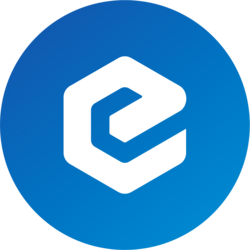
SAN FRANCISCO, Feb. 16, 2022 /PRNewswire/ — Chainlink, the market-leading blockchain oracle solution, today announced the latest release of Chainlink VRF v2 (Verifiable Random Function). This new and improved version of the industry’s most widely adopted random number generator (RNG) provides an easy-to-use subscription management app for accessing a secure source of randomness while reducing transaction fees by 60%, empowering smart contract developers to build the next wave of provably fair and scalable NFT and gaming applications.
Whether it’s the outcome of a game, the attributes of an NFT, or the distribution of unique digital assets, randomness is a core component to making these processes fair, exciting, and secure. On their own, blockchains and smart contracts are not able to guarantee randomness and therefore need an oracle network to deliver tamper-proof, cryptographically secure, and transparent on-chain randomness. Since its launch, Chainlink VRF has become the most widely adopted random number generator solution in the entire blockchain industry, fulfilling more than 3 million request transactions and currently providing verifiable randomness to more than 2,200 unique smart contracts across multiple blockchain networks, including Ethereum, Polygon, and Binance Smart Chain (BSC). Popular projects like Bored Ape Yacht Club, Axie Infinity, Ether Cards, and more rely on Chainlink VRF for randomness.
“Over the last year, Chainlink VRF has become the industry standard for randomness in the blockchain sector,” said Sergey Nazarov, co-founder of Chainlink. “It is only with verifiable, tamper-proof randomness that it becomes possible to securely mint NFTs and their attributes, or ensure fair outcomes in blockchain-based games. Chainlink VRF has already become the standard randomness solution for the blockchain industry, and I believe the efficiency benefits of v2 will further accelerate its adoption rate across many new ecosystems.”
Without VRF, randomness derived from other sources can be easily manipulated or vulnerable to exploitation with no guarantee of being truly random, meaning that a bad actor can influence an NFT mint or game mechanics in their favor. To alleviate this problem, Chainlink VRF is built to provide blockchain developers with a source of cryptographically secure, on-chain randomness. With every new request, Chainlink VRF generates a random number and cryptographic proof of how that number was determined using a combination of unpredictable block data and an oracle’s private key. The cryptographic proof is then published and verified on the blockchain where it can be used by a consuming application. This process ensures that the results are provably fair, verifiable, and tamper-proof.
Chainlink VRF v2 is live on Ethereum mainnet, with plans for deployment onto additional leading blockchains already supported by the Chainlink Network, including Polygon, BSC, and more in the future. Major improvements introduced in the VRF v2 release include:
- A pay-as-you-go subscription management contract (making requests more cost-efficient)
- The ability to adjust the callback gas limit when verifiable randomness is delivered
- Expanded capabilities for defining the number of block confirmations needed to deliver randomness
- A new, seamless way to request multiple random numbers in a single on-chain transaction
- Unified billing to enable multiple smart contract addresses to fund their randomness requests from a single subscription balance
“As a dynamic NFT Platform, we’re excited to leverage the new features of Chainlink VRF v2. We love the ability to get multiple random numbers per request and use custom callback gas limits,” said Andras Kristof, founder of popular NFT project Ether Cards. “Ensuring verifiable randomness is a core need in the NFT space. VRF v2 enables us to build dynamic NFTs with wider design capabilities and lower development costs for collections using our Ether Cards Platform.”
Over the last year, Chainlink VRF has been used in popular NFT drops as well as exciting new blockchain games. As Chainlink VRF scales alongside a rapidly growing blockchain industry, its potential use cases can continue to expand to support a metaverse that requires entropy to mimic our analog world, including everything from loyalty programs to fair selection for high demand events to randomly selected adjudicators for high stakes processes like arbitration and appraisal.
Aleksander Leonard Larsen, COO of Axie Infinity said, “Verifiable randomness solutions like Chainlink VRF v2 are essential for developers introducing entropy into on-chain gaming and NFT experiences, empowering them to create fair and tamper-proof play-to-earn games.”
Made up of independent oracle nodes and data providers like Deutsche Telekom’s T-Systems, Swisscom, the Associated Press, and others, the Chainlink Network is the world’s most widely adopted and battle-tested oracle network, securing more than $75 billion worth of value across hundreds of applications and a dozen different blockchains at the end of 2021.
To learn more about Chainlink VRF v2, see the announcement post and developer documentation.
If you would like to learn more about Chainlink, visit chain.link. You can also subscribe to the Chainlink newsletter and follow @chainlink on Twitter.
About Chainlink
Chainlink is the industry standard for building, accessing, and selling oracle services needed to power hybrid smart contracts on any blockchain. Chainlink oracle networks provide smart contracts with a way to reliably connect to any external API and leverage secure off-chain computations for enabling feature-rich applications. Chainlink currently secures tens of billions of dollars across DeFi, insurance, gaming, and other major industries, and offers global enterprises and leading data providers a universal gateway to all blockchains.
Learn more about Chainlink by visiting chain.link or reading the developer documentation at docs.chain.link. To discuss an integration, reach out to an expert.
SOURCE Chainlink



















